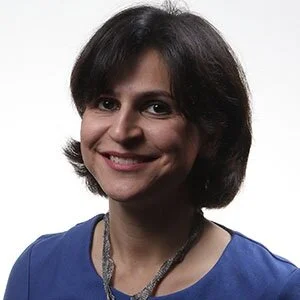SDRC Trainee Highlight: Dr. Laya Ekhlaspour
SDRC applauds the achievements of its outstanding trainees and is committed to supporting their growth via Pilot and Feasibility grants, opportunities to showcase their work in weekly SDRC seminars and providing a collaborative environment across disciplines. Here, we are proud to highlight the work of SDRC member and Instructor, Pediatrics - Endocrinology and Diabetes, Dr. Laya Ekhlaspour who was recently awarded an SDRC Pilot and Feasibility Grant with generous funding support from the Stanford Maternal and Child Health Research Institute (MCHRI) and the Department of Pediatrics at Stanford.
Dr. Ekhlaspour is interested in improving the effectiveness of artificial pancreas systems for type 1 diabetics. Current artificial pancreas systems lack the ability to automatically detect meals because of which patients often find it challenging to control their blood sugar levels after meals. Dr. Ekhlaspour’s project will track the effect of fat and protein in the diet on blood sugar levels after meals. “This information could be used in artificial pancreas systems to improve glycemic control without meal announcement”, she says.
To figure out the impact of specific food groups on postprandial sugar levels, Dr. Ekhlaspour will first conduct an analysis of well-defined meals with known glucose, protein and far content using “existing datasets of CGM and insulin values in closed loop systems”, she explains, saying “This analysis will provide data to allow modeling for insulin requirements, and eventually setting the percent of insulin required upfront for different kinds of meals”, essentially paving the way for a smarter artificial pancreas.
Technical challenges aside, Dr. Ekhlaspour also recognizes the other issues that patients face when it comes to using artificial pancreas systems, including current hybrid closed loop systems which, she acknowledges, “requires additional inputs and pre-meal insulin dosing calculations to reduce postprandial hyperglycemia”.
The initial phase of Dr. Ekhlaspour’s proposal is supported by SDRC. SDRC members Drs. Bruce Buckingham and Manisha Desai will serve as her primary mentor and co-mentor respectively for this project. Speaking of her commitment to improving artificial pancreas systems, she affirms, “My long-term goal is to decrease the diabetes burden so that patients do not have to count carbs, fat or protein”.
By
Harini Chakravarthy
Harini Chakravarthy is a science writer for the Stanford Diabetes Research Center.

